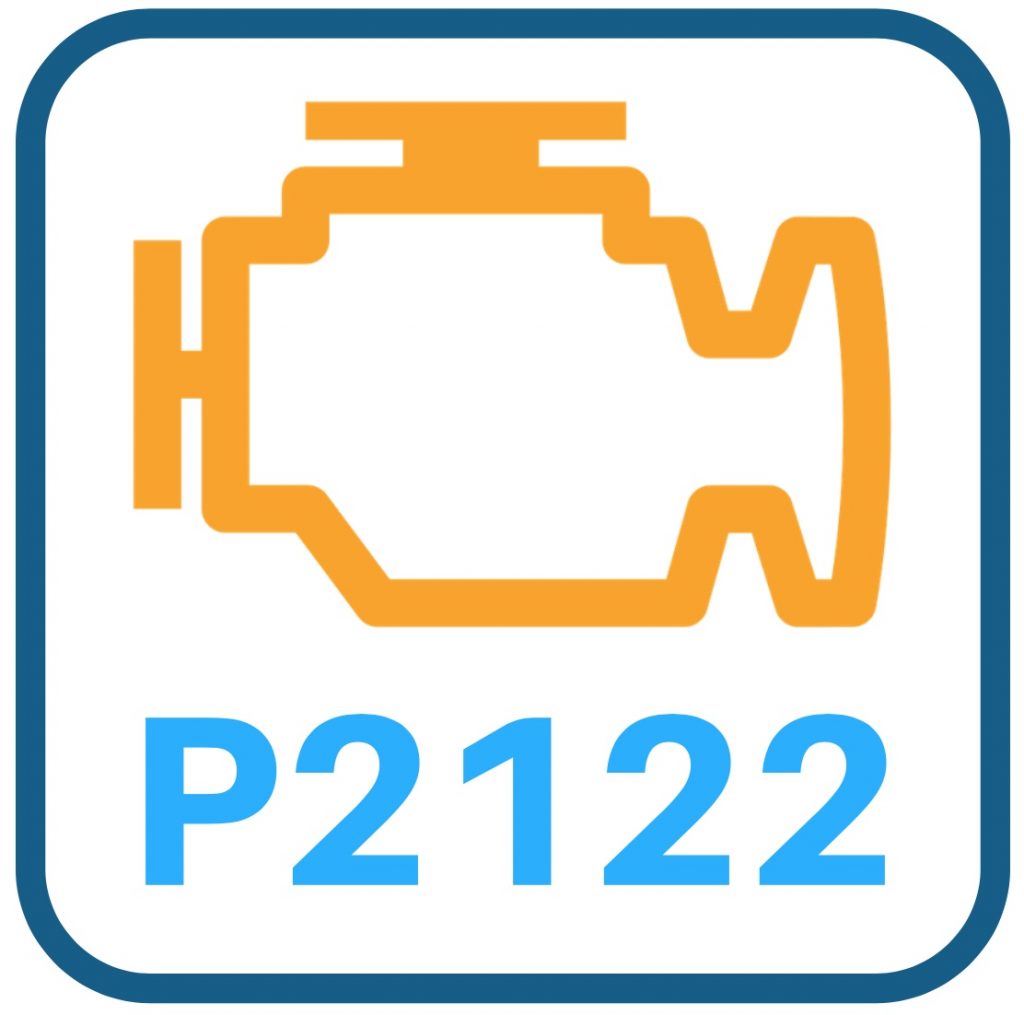P2122 is a generic OBD-II code, meaning that it has the same definition for all makes and models of vehicles, including your Ford Kuga.
P2122 indicates that the voltage coming from your Kuga’s throttle position sensor “D” is below the normal operating range. The most common cause of this code is a bad TPS, a damaged wiring harness going to the TPS, or damage where the harness plugs into the TPS.
P2122 Definition: Throttle Position Sensor – D Circuit, Low Input

Here’s the definition of P2122, broken down.
Throttle Position Sensor
The throttle position sensor on a Ford Kuga measures how far you have pressed the gas pedal down. This information is transferred to the PCM (Powertrain Control Module). The PCM takes the data and uses it and info from the MAF and/or MAP sensor(s) to control spark timing and other engine functions.
D Circuit, Low Input
The voltage coming from the “D” circuit of the TPS is too low. The voltage level is what tells the PCM how wide the throttle has been opened.
When the voltage level is “Low Input,” it is below the minimum operating range specified by the manufacturer, and your Kuga’s PCM will illuminate the check engine light with P2122.
Ford Kuga P2122 Symptoms
The symptoms of P2122 will depend greatly on whether or not your Kuga uses drive by wire or drive by cable. The older it is, the more likely that it’ll use drive by wire.
If it is controlled by a drive-by-wire system (computer-controlled throttle, most vehicles now use it), the PCM can limit or stop the throttle entirely.
Here are the most common symptoms of P2122:
- Check Engine Light– The check engine light may or may not have any other codes with it. P2122 will often be seen with P2106 or P2104. These codes indicate that the vehicle has entered a fail-safe mode since the PCM can not verify the throttle position.
- Engine Idles Only or Limited Acceleration– This is common on drive-by-wire vehicles. Fixing the TPS and clearing the codes will get your Kuga out of limp mode if it’s been enabled by the PCM.
- Rough Idle or Stalling– This is common on vehicles that are drive by cable. The air still enters the combustion chamber, but without knowing how wide the throttle was opened, it can lead to misfiring and all sorts of problems.
P2122 Causes + Diagnosis: Ford Kuga

Here are the most common causes of P2122, as well as a solid order of diagnostic operation to use.
Take a Look at the Wiring
The TPS is easy to find on the throttle body. First, inspect the harness going to it. Pay extra close attention to anywhere that the harness may have come into contact or rubbed something. Look for burnt or damaged wiring.
Take at where it plugs in and see if there has been any damage to the pins. If they appear corroded, get some electrical contact cleaner and clean them up. If they are damaged, you will need to repin or replace your Kuga’s wiring harness.
Test the Voltage
A quick inspection of the wiring harness can provide a quick win. If you didn’t see anything, then it’s time to go about testing the voltage at the TPS.
Make sure that the ground is good before doing anything else.
You’ll need to look up the specs for your Kuga’s particular model year and engine. But, you don’t need to do any of that if there is no voltage at all.
If there’s no voltage, check if the wire is hot coming out of your Kuga’s PCM. If it is, the wiring has been damaged somewhere between the TPS and PCM. You’ll need to run a new wire and repair the harness.
If there is voltage coming from the TPS, but it is below Ford’s suggested range, the TPS itself is likely bad, and you’ll need to replace it to clear P2122.
PCM (Unlikely)
If everything seems ok, and the signal coming from the TPS is normal, the PCM could be at fault. It’d be cheaper to have a professional mechanic take a look at it than it would be to find a PCM for your Kuga.
Conclusion
P2122 is most often repaired by replacing the TPS or fixing the wiring harness. If you’ve recently replaced the TPS and P2122 appears, you’ll need to calibrate it to clear the code in order to get your Kuga back on the road.

